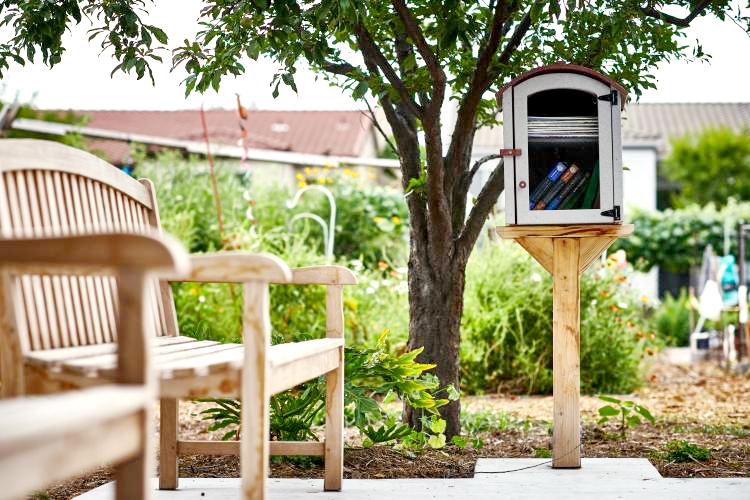Our LFL

A column centering on the Altadena Community Garden’s Little Free Library
Autumnal literature, though vastly varied, does tend sometimes toward the wistful departure, often a passing, and sometimes, with the return of Halloween, a bit of spooky foreboding. A few poems come to mind, one such being the one depicting the cursed Lady of Shallott with her mysterious malediction and forbidden gaze at Camelot, which of course she finds she can’t resist. Too long to quote here, please read or listen to it online.
An interesting practice has evolved, that of providing summary of or commentary on great works in the smallest possible space – the limerick – often pages of text distilled into the few syllables of this five line form. Tennyson’s The Lady of Shallott has inspired many of these; here are a few for which acquiring permissions was not a problem.
I am half sick of shadows cried
The lady ere she looked outside
And then a boat
Bore her afloat
‘Till singing her last song she died.
The lady wove scenes that would pass
The window she saw in the glass
‘Till the web from the loom
Filled all of the room
She never looked out, the poor lass
Through a looking glass saw she outside
Where the Round Table Knights oft would ride
Then she took a straight look
And Lancelot took
Her with him – the whisper had lied.
Unlike the Lady whose autumnal character is implicit in the reference to barley sheaves, the incontrovertibly spooky Raven of Poe is explicitly hybernal. This superbly crafted litany of dismal vaticinations has inspired so many over the years, yet few have thought to ask why the narrator does not learn from experience, having rapidly and overtly gleaned the truth of the bird’s limited vocabulary. One more little limerick does ask just that question:
Why ask if you’ll clasp your Lenore?
“Nevermore” is its sole stock and store.
Not the answer you sought?
Then simply ask not
What you’d not like so answered once more.
Until next time, always remember:
If you have a garden and library, you have everything you need – Cicero
Denis Titchenell
Plot 43A
[And perhaps note the corollary to Cicero’s asseveration. – ed.]